How a French castle owner is building an organic business
Roula Khalaf, Editor of the FT, selects her favourite stories in this weekly newsletter.
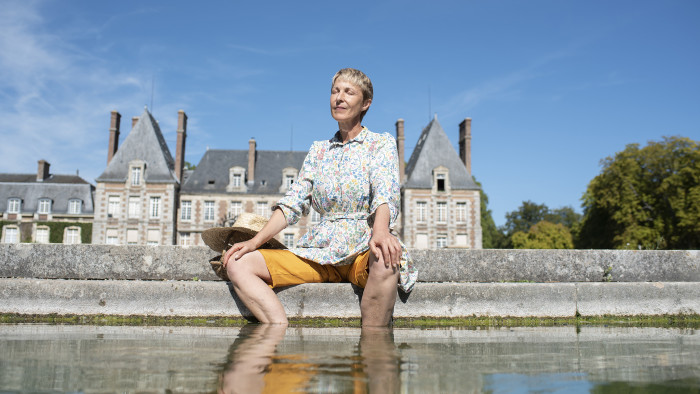
Valentine de Ganay gestures at a field that appears to be completely overrun with weeds. “It looks like a total mess. It looks like 100 per cent weeds, which it is,” she says, pointing out the window of her four-wheel drive.
“But we are not just going to hammer them on the head or plough the fields, we are going to sow crops in the weeds. We are working with nature.”
Ms de Ganay is leading an ambitious sustainable food production project to transform the 500 hectares of land that she and her family own in the Île-de-France region.
As part of this, she has adopted conservation agriculture, a farming system that promotes maintaining a permanent soil cover and minimising soil disturbance through tillage.
Ms de Ganay was a writer and journalist but when her father, Jean-Louis, died in 2013, she began a new chapter. She studied to become an organic farmer and set out to rebuild the landscape around the family’s magnificent 17th century castle, Château de Courances. It was here that the 20-year-old Jacqueline Bouvier spent weekends with Ms de Ganay’s aristocratic ancestors during her year studying in Paris, well before becoming first lady of the US.
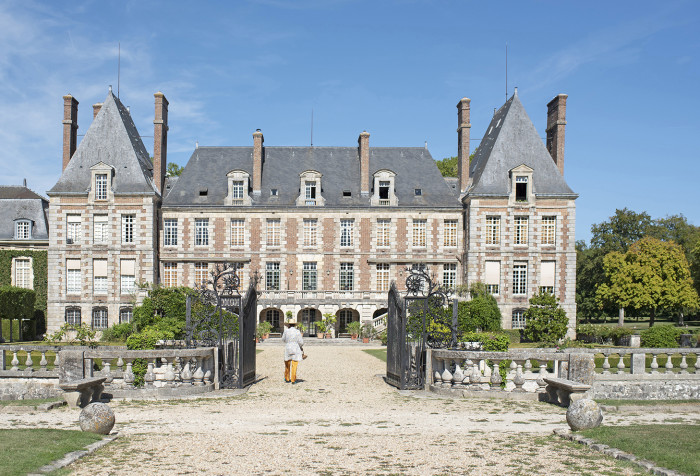
“Something new had to be invented,” says Ms de Ganay, who is elegant, straight-talking and bursting with ideas. “I decided I wanted to do the job — not because I was passionate about agriculture since I was a girl. Not at all. Sometimes you do something because you have a quite strong consciousness that if you don’t do it, nobody is going to do it. Or worse, that if you don’t do it, somebody else might.”
As Ms de Ganay learnt more about agriculture, she faced conflicting advice. “You had the apostles of these two chapels: the organic for whom the devil is chemicals but who allow themselves to plough the land and work the ground. And then you had conservation agriculture, those for whom the devil is to work the land but are not afraid to use a bit of herbicide on the weeds.”
Ms de Ganay uses both approaches at Courances. “Either through naivety or pretension, I am doing something very ambitious,” she laughs.
“A big part of the project is reflecting on our environmental, social and territorial responsibility, and developing a way of farming that is better for the environment because it reduces energy consumption and is better for people’s health,” says Bruno Saillet, who works on the organic conservation project.
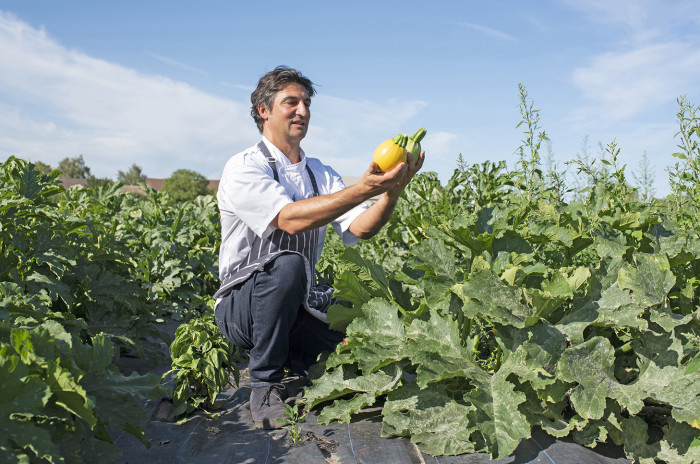
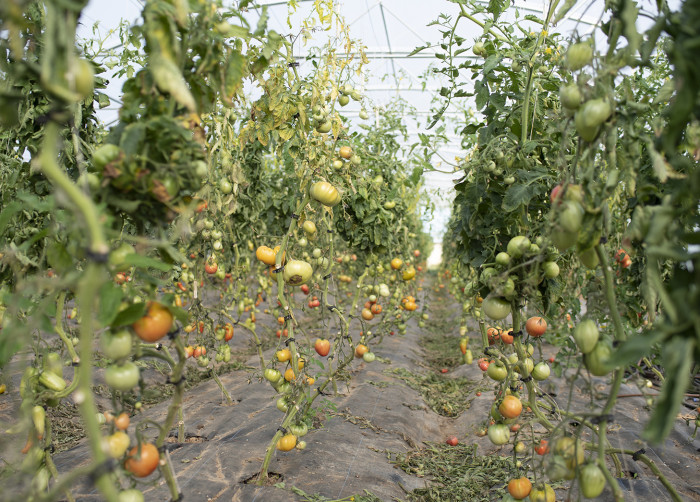
Organic farming prohibits the use of synthetic chemicals such as pesticides. It has been defined by a European regulation since 1991, which harmonised organic certification across the bloc.
Subsidies from both France and Europe have played an important part in helping farmers such as Ms de Ganay to finance the shift to organic. “Physically the place was a mess and financially it was a disaster . . . If I hadn’t had subsidies, considering the ruin that this farm was, I wouldn’t have been able to do anything,” she says.
So far, Ms de Ganay has received about €60,000 in European and regional subsidies. The kitchen garden has also benefited from being part of the World Wide Opportunities on Organic Farms, a global scheme that links volunteers with organic farmers.
France is the EU’s largest agricultural producer. Last year a record number of French farms switched to organic production. It added 5,000 organic farms in 2018, ahead of previous highs of 4,200 in both 2016 and 2017, according to the Agence Bio, the country’s organic food agency. This increased the number of organic farms in France to 9.5 per cent of all farms, behind a government target of 15 per cent by 2022.
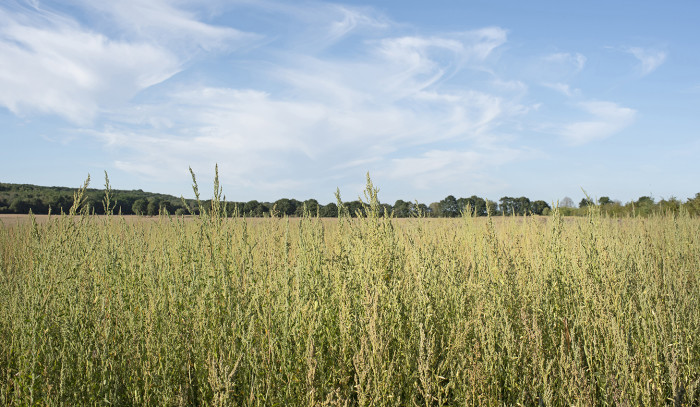
This switch to organic farming is partly driven by increasing demand for organic food as consumers seek healthier and more sustainable options.
Ms de Ganay has also embarked on an agroforestry initiative to accelerate the restoration of the soil, which involved planting more than 1,800 trees. The ambition is to convert the entire area to organic farming for crops using the principles of conservation agriculture.
Ms de Ganay is inspired by Guy Singh-Watson, a British farmer who created Riverford Organic Farmers, a farming and vegetable-box delivery company. Like Mr Singh-Watson, she wants to shorten the distance from farm to table.
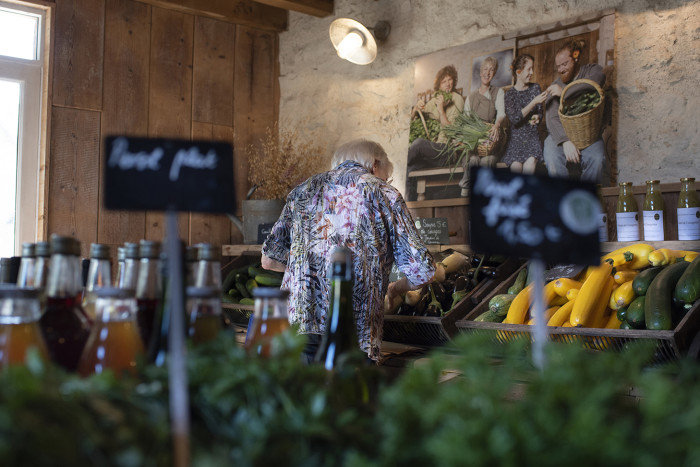
The château’s 2.8-hectare walled garden was certified as organic in 2015. Its fruit and vegetables are sold through a farm shop in the village of Courances, as well as in a local outlet and via Tomato & Co, a digital platform that connects organic producers with restaurants and individual customers.
“The whole challenge with organic food is that it shouldn’t just be for an elite,” she says. “I want it to be top quality but available to everyone . . . Organic food should be fresh, healthy, probably more expensive than the rubbish you get in the supermarket, but not inaccessible. And the government needs to get involved to help lower the prices.”
Looking ahead, Ms de Ganay is determined that the combination of organic and conservation agriculture at Courances acts as a model for other farms to help build a more sustainable future.
“I wouldn’t do this job if I didn’t believe that organic was not the solution for the world,” she says. “Every country should get back its alimentary autonomy.”
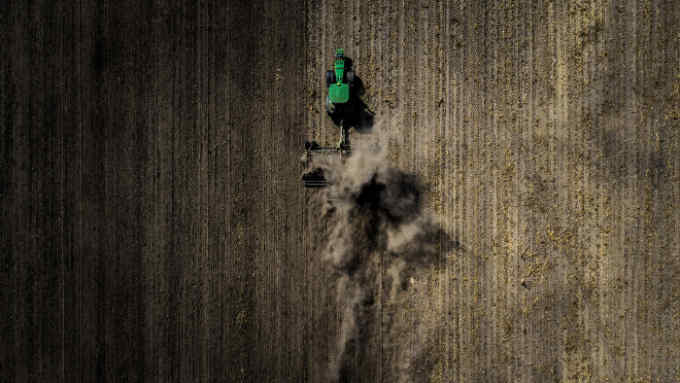
Comments